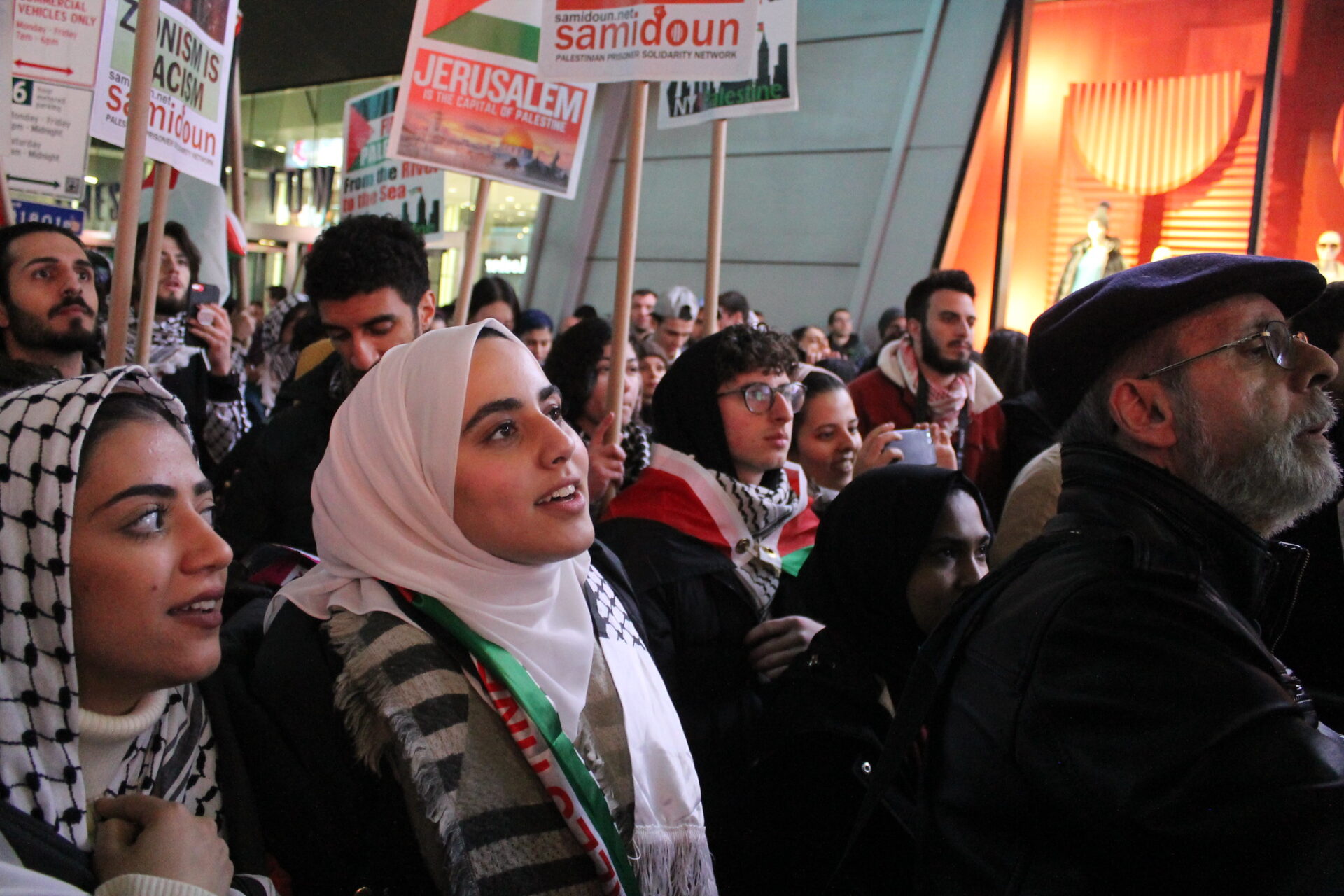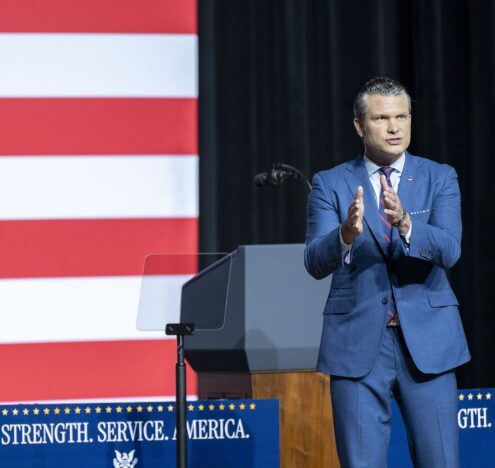The Israeli-Palestinian conflict may be divisive, but two things aren’t in dispute. The human costs of the war in Gaza — particularly to innocent Gazan civilians — are mounting at a horrific clip. And with them, a sense of shock, anger, and betrayal is brewing among the voters President Biden will need to win reelection.
By the time you read this, the numbers will be worse. But as I write, the Israeli assault has killed over 10,000 people in Gaza, most of them women and children. Gaza is becoming a “graveyard for children,” UN Secretary-General Antonio Guterres warned recently.
Israeli bombs have driven more than half of the territory’s 2.3 million people from their homes, damaged or destroyed around half of all housing units, and wiped out entire extended families.
Schools, refugee camps, and places of worship have all been bombed, and the territory’s hospitals are collapsing as casualties mount, doctors are killed, and supplies run down. UN experts — and some Holocaust scholars — warn that there’s a potential genocide underway.
The reflexive pro-Israel politics of the Biden administration are beginning to look like a liability.
So far, Biden has stuck by the Israeli government. His administration has called for a $14.3 billion military aid package over and above the more than $3.8 billion Israel already receives annually, vetoed a UN resolution calling for a ceasefire, and — disturbingly — cast doubt on reports of civilian casualties.
In the past, this approach was politically safe. But this time is different. For one thing, Israel has the most far-right government in its history. “Among other controversies, the Israeli finance minister calls himself a “fascist,” while the country’s national security minister was previously convicted of inciting racism,” explains Middle East expert (and my colleague) Phyllis Bennis in The Hill. And Prime Minister Benjamin Netanyahu’s “judicial reform” power grab sent hundreds of thousands of Israelis into the streets to protest.
This government has polarized not only Israelis themselves but many pro-Israel groups in the United States. And if anything, its current rhetoric has grown even more extreme. Israeli Defense Minister Yoav Gallant — while announcing a total siege on Gaza — called Palestinians “human animals.” And Netanyahu has called for a “holy mission,” invoking a biblical passage that commanded the wholesale slaughter of an enemy community.
A Generational Shift
This extremism has accelerated a generational shift. While prior generations largely sympathized with the idea of Israel as an “outpost of democracy” in the Middle East, those of us under 40 grew up watching it behave like an apartheid regime. Palestinian advocates have long said that’s what’s happening — and expert assessments by Amnesty International, Human Rights Watch, and the Israeli group B’tselem all now agree.
As a result, the reflexive pro-Israel politics of the Biden administration are beginning to look like a liability. With Biden’s approval among Democrats down 11 points since the war started, Biden is now lagging behind Trump in several key swing states. And his embrace of Netanyahu is likely only complicating the problem.
“We write to you to issue a very stark and unmistakable warning: you and your administration’s stance on Gaza risks millions of young voters staying home or voting third party next year,” leaders of United We Dream, March for Our Lives, the Sunrise Movement, and Gen Z for Change said in a recent letter to Biden. “The vast majority of young people in this country are rightfully horrified by the atrocities committed with our tax dollars.”
“A lot of young progressives see the treatment of Palestinians,” NPR politics reporter Danielle Kurtzleben observed, “as a form of systemic oppression.” Correspondent Ashley Lopez added: “These factions of the Democratic Party don’t feel heard… Young voters and voters of color are almost taken for granted by Democrats.”
Other recent polls bear that out. In a recent CBS poll, small majorities of both Democrats and independents opposed sending US weapons to Israel. Driving that shift were younger people: 59% of those under 30 — and 64% of those between 30 and 44 — were against it.
More dramatically, Biden’s approval among Arab Americans— 59% of whom backed him in 2020 — plunged to just 17%. And with some Arab and Muslim advocates in states like Michigan and Minnesota circulating pledges threatening to withhold their votes over his Israel policy, that should be a wake-up call. “What’s happening is betrayal,” said Hassan Abdel Salam, a human rights professor and organizer in Minnesota.
Notably, many young Jewish activists feel similarly. A J Street Poll last year found that 68% percent of young Jews supported restricting U.S. military aid to Israel if it’s used to expand illegal Israeli settlements in the Palestinian West Bank.
And thousands of Jewish activists have been among those demonstrating for an immediate ceasefire. “As a Jewish American, I don’t feel safer when the Israeli government breaks international law to bomb families sheltering in refugee camps or cut off electricity to children in hospitals,” my colleague Sarah Gertler wrote recently. “I especially don’t feel safe knowing my U.S. tax dollars are funding these crimes.”
To save lives — and his political future — Biden should join the 80% percent of Democrats, two-thirds of all voters, and a growing chorus of lawmakers who are calling for a ceasefire.
The Hamas attacks that killed over 1,000 Israelis on October 7 were horrifying, illegal, and wrong. And for an emerging majority of progressives, so is the killing of over 10,000 Palestinians and counting.
If the Biden administration doesn’t find that moral calculus compelling, then his base voters will have to change his political calculus. As tens of thousands of Americans continue to show up for pro-ceasefire rallies, they just might.




















